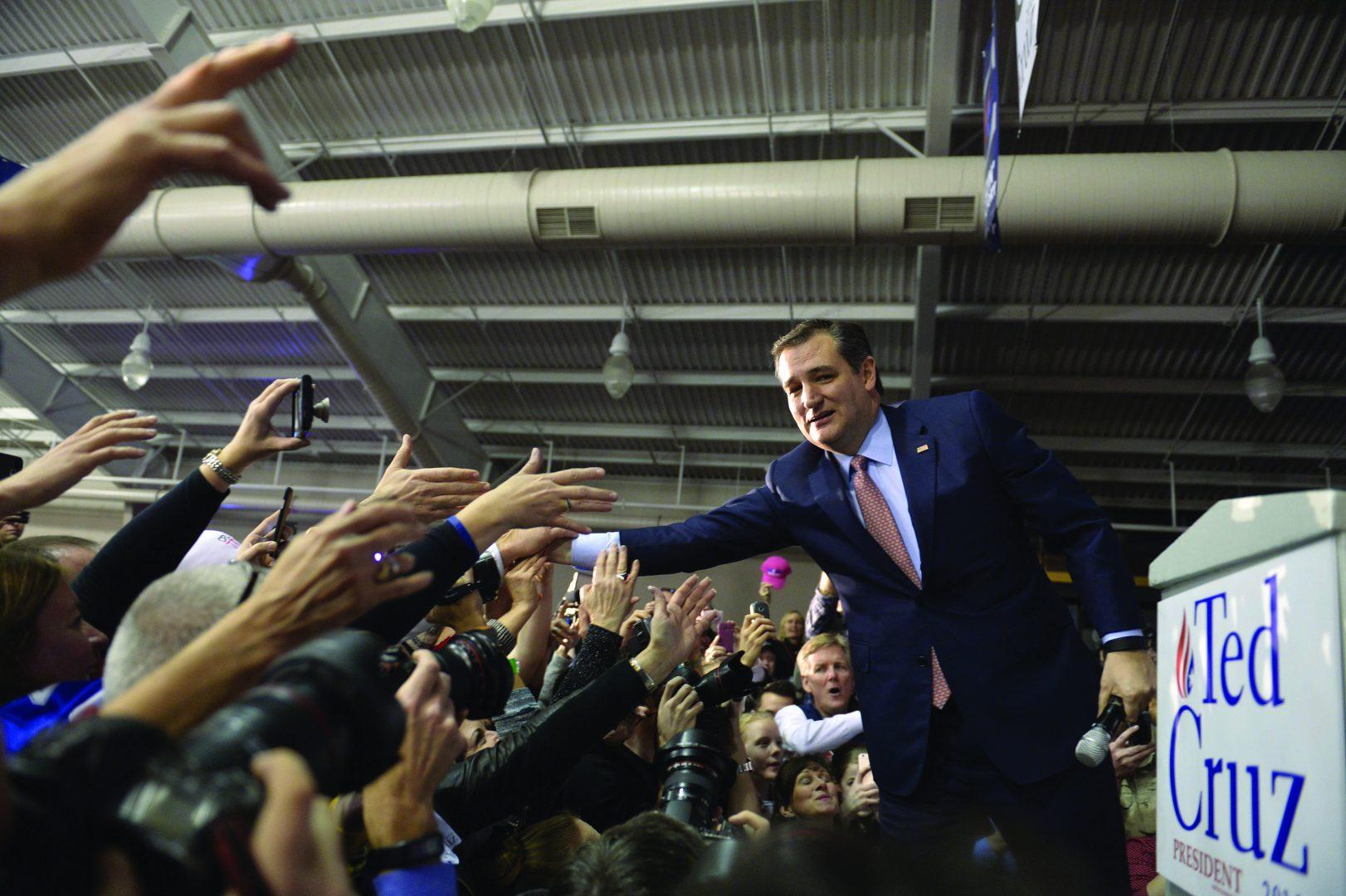The results of the Iowa caucus are in — with Ted Cruz taking a surprising lead over Donald Trump and Hillary Clinton pulling a slight win over Bernie Sanders.
Cruz took eight delegates with 27.6 percent of the popular vote. Trump received seven delegates with 24.3 percent of the popular vote. Marco Rubio came in third with seven delegates also, and 23.1 percent of the popular vote. The closest after Rubio was Ben Carson, with only three delegates and less than 10 percent of the popular vote.
“That is really bad news for Jeb Bush, Chris Christie and the others. Indeed, given how well Rubio did in Iowa (very strong third), the Republican primary is almost a three person race now,” said Dr. Thomas Holyoke, professor of political science at Fresno State.
This year was record breaking for the Iowa caucuses with the highest GOP turnout ever — 186,000 Republicans caucused on Monday. That is 65,000 more than the last Iowa caucus.
“Tonight is a victory for the grass roots,” Cruz said to crowds on Monday night. “Tonight is a victory for courageous conservatives across Iowa and across this great nation. Tonight the state of Iowa has spoken.”
Jeremiah Folia, Central Valley regional chair for the Cruz campaign and campus chair, said, “Iowa is a big deal and it should mean a lot to us as Americans; not necessarily because it guarantees Senator Cruz the presidential nomination, but because it represents three major traits America prides itself in – freedom, diversity, and opportunity.”
“Nobody thought that Ted Cruz had a chance in the race because he was the most liberty-minded individual running for President,” Folia continued, “he proved the critics wrong and revealed the fact that Americans do care — they want freedom.”
Once at the top of the polls, Trump has to admit defeat on Monday night. He accepted the loss, saying, “We finished second and I want to tell you something, I’m honored. I’m just really honored.”
The race is not over yet. With three front runners narrowed down, the voting is just beginning. Feb. 9 is the New Hampshire primary — and Trump is leading in the polls. Real Clear Politics reports that Trump is polling at 33.7 percent, and Cruz at 11.5 percent in New Hampshire as of Feb. 1.
“On the Republican side we now have a fierce contest between Cruz and Trump for the mantel of outsider, and Marco Rubio rising as the most likely anti-Trump, anti-Cruz pro-Republican establishment candidate” Holyoke said.
Another fierce competition is the neck-and-neck race between Sanders and Clinton for the Democratic nomination. There is no clear frontrunner at this point. The candidates were so close that a winner was not announced until nearly 1 p.m. on Tuesday.
Clinton took the lead by a hair — 23 delegates to Sanders’ 21. She won the popular vote by 0.3 percent.
Martin O’Malley suspended his campaign Monday night after fewer than 1 percent caucused for him.
O’Malley told his supporters at a rally in Des Moines, “I want to thank everyone who came out to our events and lent me their ear and everyone who went out to caucus for me tonight,” he continued, “This fight continues,we fought very, very hard in order to give the people a choice, and the people made their choice tonight.”
Holyoke said, “With Martin O’Malley now out, the Democratic primary is a fierce contest between Clinton and Sanders. The challenge for Sanders is to see if he can maintain his momentum after New Hampshire, when the campaign goes to South Carolina and other southern states where Clinton is strong.”
On Tuesday, Real Clear Politics showed Bernie Sanders leading in the New Hampshire polls at 63 points with Clinton at 30.
Yezdyar Kaoosji, a member of the Fresno For Bernie volunteer group, said, “the Iowa caucus results have established that Sen. Bernie Sanders is a viable candidate and is in the race as a serious contender for the Democratic Party nomination.”
He continued, “The media and the party establishment can no longer be dismissive of his candidacy.”
The caucus was so close that Sander’s campaign asked for a recount. The National Democratic Party declined his request and named Clinton the winner.
Sanders’ is still skeptical of the counts, he told reporters on Tuesday in New Hampshire, “we want to look at some of the numbers, as I understand it, there were some precincts where actually delegates were won with a flip of a coin actually.”
As many as six precincts could not meet a majority, and a coin was tossed to decide a candidate.
Sanders said it was, “not the best way to do democracy.”




